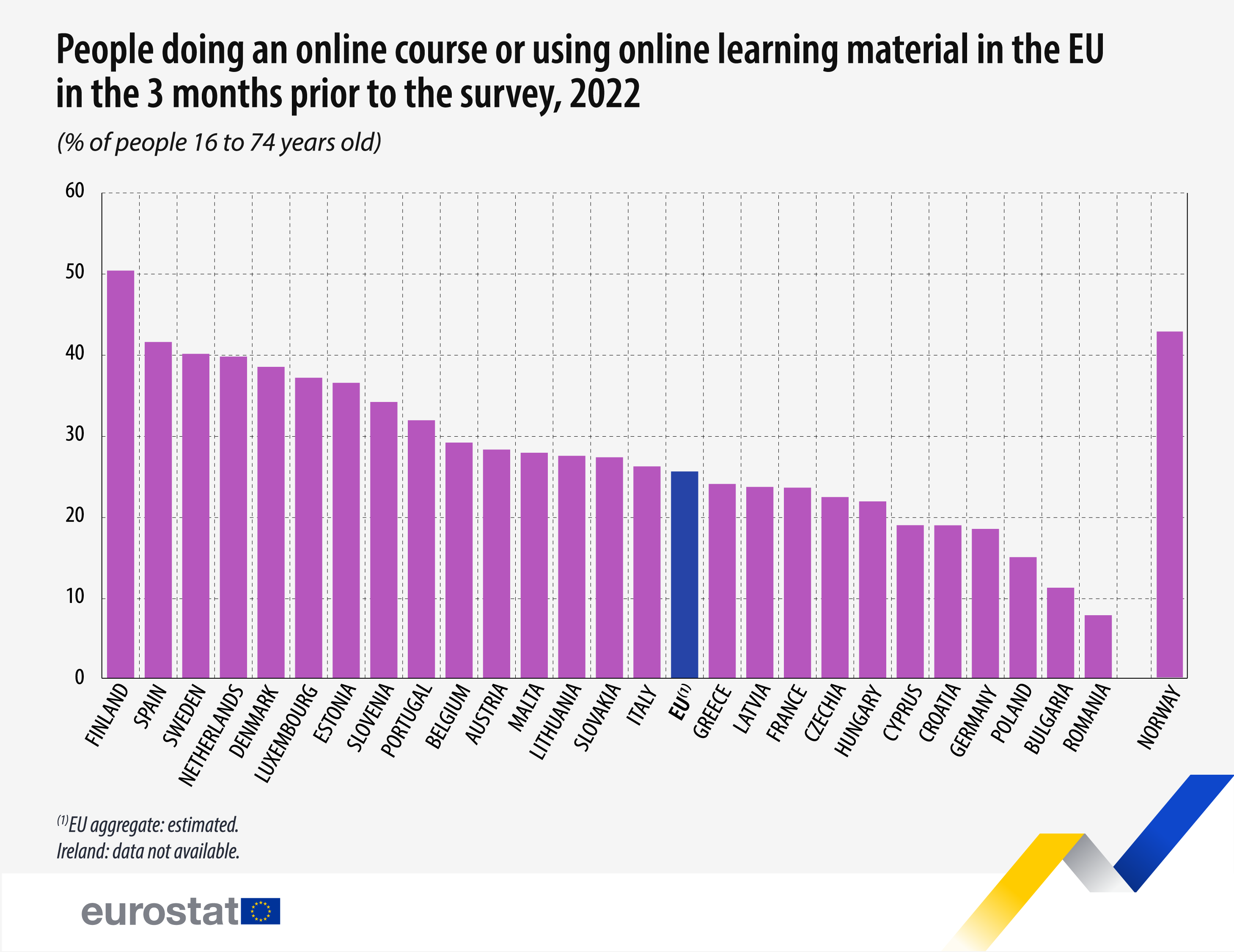Decrease in online education in the EU in 2022

Online courses are a convenient way to learn something new or to deepen your knowledge in a specific topic, for example improving your language skills, expanding your professional qualifications or simply for fun. During the COVID-19 pandemic, when people were encouraged to limit social contact, online courses were a safe alternative for education and training and grew in popularity. However, as social restrictions eased, the popularity of online courses decreased.
In 2022, 26% of people aged 16 to 74 in the EU reported that they had done an online course or used online learning material in the three months prior to the survey; this is a 2 percentage point (pp) decrease compared with 28% in 2021.
Source dataset: isoc_ci_ac_i
In 2022, among all EU Members, Finland had the highest share (50%) of people aged 16 to 74 doing an online course or using online learning material, followed by Spain (42%), Sweden and the Netherlands (both 40%).
At the other end of the scale, doing online courses or using online learning material was not very common in Romania (8%), Bulgaria (11%) and Poland (15%).
In general, participation in online education decreased compared with 2021. In 2022, the share of people doing online courses or using online learning material decreased in all the EU countries except for Finland (+5 pp in 2022 compared with 2021), Croatia (+1 pp) and Czechia and Italy (both unchanged). The highest decreases were registered in Slovenia (-7 pp), Luxembourg (-6 pp) and Belgium, Estonia, Austria and Sweden (all -5 pp).
This news item marks the International Day of Education, celebrated on 24th January.
For more information
Methodological notes:
- Ireland: data not available. As a result, the EU aggregate has been estimated.
- The data in this article are based on the annual survey on the use of ICT in households and by individuals. The results above refer to individuals’ experiences during the 3 months prior to the survey, i.e. the first quarter of 2022.
- Online course: a course (planned series of learning activities in a particular subject or topic) offered entirely or partly online and resulting in a qualification or certificate of attendance.
- Online learning material: the use of educational material (other than an online course) on any subject or topic available online or in a digital format for educational, professional or private purposes (e.g. audio-visual materials, online learning software, electronic textbooks, learning apps).
If you have any queries, please visit our contact us page.

